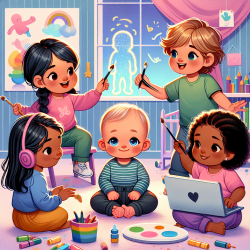As a speech-language pathologist deeply committed to leveraging data-driven insights to foster better outcomes for children, I am thrilled to share findings from a recent qualitative study titled "Mental health literacy amongst children with common mental health problems and their parents in Java, Indonesia." This research underscores the critical role mental health literacy (MHL) plays in recognizing, understanding, and addressing mental health issues in children. For practitioners, this study offers invaluable insights into improving our approaches and interventions.
Understanding Mental Health Literacy
Mental health literacy, as defined by Jorm et al. (1997), encompasses four broad domains:
- Recognition of mental illness
- Understanding the causes of mental ill health
- Help-seeking knowledge (self-help strategies, professional help seeking, and seeking mental health information)
- Beliefs about facilitators and barriers to help seeking
While these concepts are well-studied in high-income countries, their application in low- and middle-income countries (LMICs) like Indonesia remains underexplored. This study aimed to fill that gap by examining the MHL of Indonesian children and young people (CYP) with experience of common mental health problems and their parents.
Key Findings
The study revealed several critical insights:
- Low Levels of MHL: Both parents and CYP demonstrated relatively low levels of MHL from a conventional perspective.
- Religiosity and Spirituality: These were prominent in participants' accounts, contributing to self-blame for mental illness and a preference for spiritual/traditional healers over professional help.
- Family Support: CYP heavily relied on family support, yet parents often felt ill-equipped to communicate about mental health.
- Technology-Based Information: CYP advocated for trusted, technology-based sources of mental health information.
Implications for Practitioners
For practitioners, these findings offer actionable insights to enhance our practice:
- Culturally Appropriate Interventions: Develop interventions that incorporate dominant cultural values and reflect the preferences and expectations of the target population.
- Enhancing Parental Literacy: Focus on improving parents' MHL to facilitate better communication and support within families.
- Leveraging Technology: Utilize technology-based resources to provide accessible and reliable mental health information to CYP.
- Community Engagement: Engage community members, including spiritual and religious leaders, to create a holistic support system for mental health interventions.
Encouraging Further Research
While this study provides a solid foundation, there is a need for further research to establish the comparative efficacy and acceptability of different MHL approaches. Future studies should focus on:
- Comparing the effectiveness of culturally adapted interventions versus conventional approaches.
- Exploring the role of technology in improving MHL among CYP.
- Investigating the impact of parental MHL on children's mental health outcomes.
By integrating these insights into our practice, we can significantly enhance mental health outcomes for children, particularly in LMICs. Robust efforts to improve MHL through culturally appropriate, technology-based, and community-engaged approaches are crucial.
To read the original research paper, please follow this link: Mental health literacy amongst children with common mental health problems and their parents in Java, Indonesia: a qualitative study.










